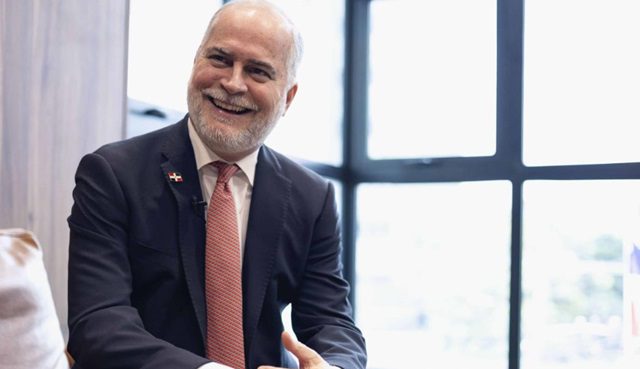BTN News: Alejandro Fernández W. has carved out a distinguished career in the financial sector, one that began in 1994 with his first job at a financial institution in New York. Since those early days, he has dedicated three decades to the financial industry, culminating in his dream role as the Superintendent of Banks in the Dominican Republic. His journey is a testament to his expertise and dedication, especially as he has navigated this path without deep ties to partisan politics—a rare feat in a landscape often intertwined with political connections. Fernández’s tenure as Superintendent has been marked by his steadfast commitment to the stability and growth of the Dominican banking system, even amid global and local economic challenges. His tenure is further distinguished by his resilience, having overcome a malignant melanoma diagnosis while continuing to guide the sector through turbulent times.
As a well-respected financial analyst, known for his popular “Econodivo” persona and his insightful columns in Argentarium, Alejandro Fernández W. has had to adapt to the more restrained communication style required of a public official. His background in public commentary and analysis made the transition to a government role particularly challenging, as he had to suppress his natural inclination to share analytical insights and criticisms through social media. Despite these challenges, he reflects on his time in office with pride, expressing satisfaction with the governance under President Abinader, even as the financial sector navigated the economic fallout from the COVID-19 pandemic and other significant financial disruptions, such as the dissolution of a poorly managed bank.
One of Fernández’s key focuses has been on the importance of increasing the national savings rate to potentially reduce loan interest rates in the long term. He emphasizes that for this to happen, the country needs to achieve a better fiscal balance. The Dominican Republic faces a substantial fiscal deficit, currently at RD$229.2 billion, necessitating the government to issue debt securities, often funded by the savings of Dominican citizens. Fernández explains that a more balanced fiscal position would allow these savings to be directed back into the broader economy, which could eventually lead to lower interest rates on loans, though this is a prospect that may not materialize for several years.
Fernández W. also highlights the Ministry of Finance’s long-standing goal of achieving an investment-grade credit rating (BBB or higher) for the country. Attaining this rating would signify a stronger fiscal balance, allowing the government to borrow at lower costs, which in turn could reduce the cost of financing across the entire economy, benefiting households and businesses alike. However, he notes that international factors, such as the U.S. Federal Reserve’s monetary policy, will also play a crucial role in determining the future of interest rates in the Dominican Republic.
Beyond his current role, Fernández envisions a future where he can continue to influence and strengthen Dominican institutions. He aspires to become the rector of a university in the Dominican Republic, driven by his passion for creating and fortifying institutions. This vision aligns with his commitment to educational and institutional development, which has been evident throughout his career.
Under his supervision, the Dominican banking sector has remained solid, even amidst challenges such as high interest rates driven by restrictive monetary policy. Despite these hurdles, Fernández expresses satisfaction with the low delinquency rates in the sector, noting that Dominicans have a strong track record of repaying their loans. However, he acknowledges that there is still significant room for growth in terms of financial inclusion. Currently, only about 50-55% of Dominicans have a bank account, and Fernández sees potential for this figure to rise to 70% in the medium term.
Furthermore, Fernández has been a vocal advocate for improving the supervision of cooperatives, which represent 10% of the overall financial system. He has criticized the current supervisory framework, managed by the Institute for Cooperative Development and Credit (Idecoop), and has called for reforms to either strengthen Idecoop or shift the supervision of larger cooperatives to the Superintendency of Banks. This push for reform comes in the wake of financial scandals, such as the fraud at Coop-Herrera, which underscored the need for more robust oversight.
As he looks to the future, Fernández remains committed to modernizing the regulatory framework governing the financial sector. He believes that there are significant opportunities to update the laws and regulations that guide the sector, ensuring they are aligned with the lessons learned from recent decades. Whether he continues in his current role or moves into academia, Fernández’s dedication to strengthening the Dominican financial system is unwavering.
In conclusion, Alejandro Fernández W. has left an indelible mark on the Dominican financial sector. His leadership during challenging times, his focus on increasing financial inclusion, and his commitment to institutional reform have positioned him as a key figure in the country’s financial landscape. As he contemplates the next chapter of his career, his vision for the future continues to center on creating and strengthening institutions that will benefit the Dominican Republic for years to come.


